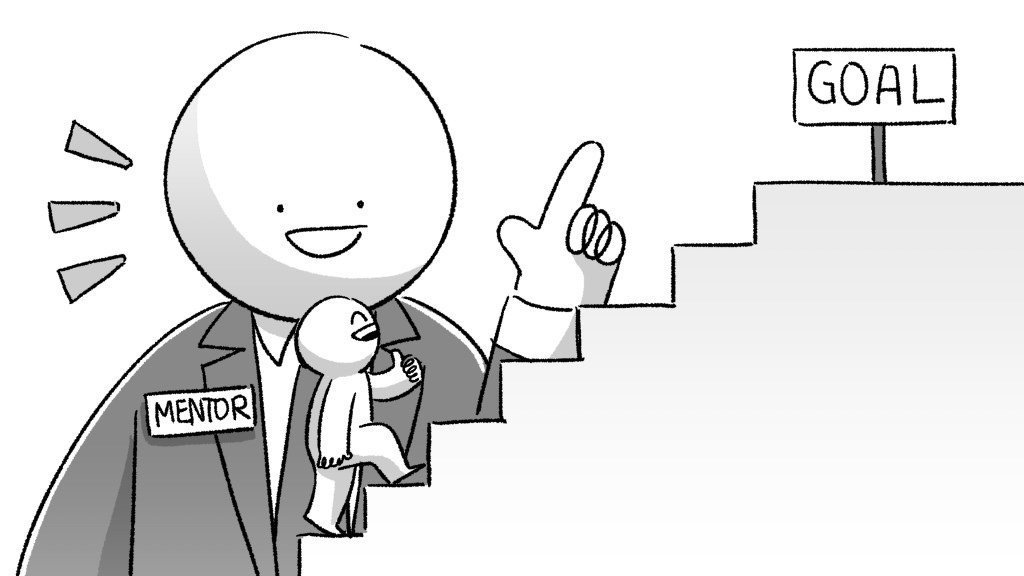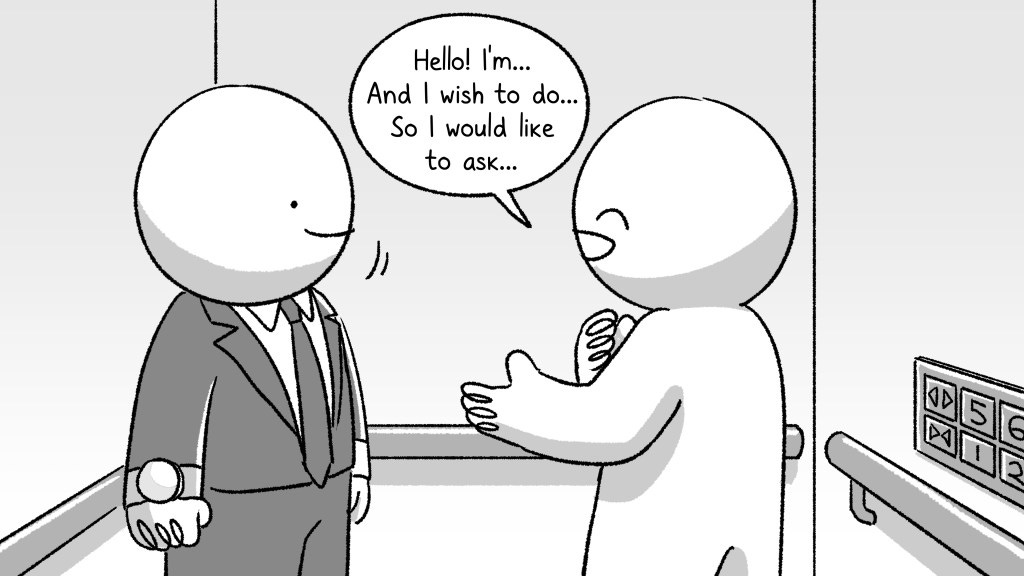Do you need a mentor, and how do you get one?
Read this before cold-emailing 100 professionals with the same generic email.
DISCLAIMER: THIS ARTICLE IS BROUGHT TO YOU BY MENTORING SG.
We hear a lot about mentors nowadays, especially with the proliferation of online posts talking about how their mentors have changed their lives.
But how do you actually get one?
Do you ask outright or build a relationship first? Do you even need one?
Let’s discuss.
Do I even need a mentor to succeed?
Let’s get this out the way first: mentors are NOT a compulsory ingredient to success.
A mentor is a person with more experience who can support, advise and guide you.
But you don’t need to have a face-to-face, one-to-one direct relationship with a mentor to get advice. Especially when we have immediate access to a wide variety and volume of advice from indirect sources such as YouTube videos, online articles, email newsletters etc.
Having said that, a mentor whom you have a personal relationship with can offer you advice tailored to your specific situation, problems, tendencies etc.
These things are uniquely compelling, and hard to get from the Internet
It just requires a bit more effort to establish and maintain; so it depends on what you are looking for.
Don’t feel like you have to get a mentor just because everyone else has one.
If this is something you want, here are some tips on how to reach out to a potential mentor.
(These pointers are also good for reaching out to more experienced individuals and industry experts when you are a young person with little experience with presumably not much to offer [yet].)
Step 1. Start by introducing yourself in a quick concise manner
This could be the most important part of your connection. You want to give enough information so the person has an idea of why you are reaching out, and what you want to learn from them.
You also want to be respectful of their time.
As they say, first impressions matter; how you introduce yourself will be an indication of what your further interactions will be like.
Say your name, what you do, and what you want from the person. The last part doesn't have to be super blatant, because it's obviously quite intimidating to ask for a mentor relationship in the first correspondence (more on this later).
Instead, describe what you hope to get from this initial conversation.
Some reasonable examples are:
You're doing an assignment on something related to the person's work
You have a few short questions (no more than three) about their work
You wanted to ask about a specific aspect of the industry (such as career prospects or in-demand skills)
You watched an interview with them and had a specific follow-up question
INSTEAD OF:
"Hi, love your work! Would like to connect and see if you can maybe be my mentor :)"
SAY:
Hi, I'm Wei Choon, a 3rd-year student at NTU ADM. I've always wanted to join LucasArts as an animator and I wanted to reach out to ask you a few questions about the industry and what it takes to make it (if you have the time)."
---
Note: Saying you're a student or fresh grad is a very effective way to stand out.
Many students tell me (Wei Choon) that they are afraid of reaching out because they are just students who have no industry experience yet (and by extension have nothing to offer the person).
But the fact that you're a student can help in lowering the natural defence mechanisms of cold-calls/texts - especially when the person has shown interest in talking to young people.
So don't be afraid to play the student card; students don't often realise how powerful this card is until they are no longer students.
Step 2. Saying something nice/interesting about the mentor/their work
(while being authentic and sincere, of course)
Why do you look up to the mentor/the mentor's work? What is special about them?
This proves that you take an interest in the person and specifically sought them out, instead of spamming generic templates to vaguely senior people you found on LinkedIn or other networking platforms.
This should be specific and objective, even though it's fine to be a bit informal and authentic in showing how you feel.
Note that if you are too overly sappy/praising/generic about this, it may come off as insincere! So be specific and honest.
Frame this around the professional work that this person does, and try to be objective about what you RESPECT - not just admire - about the person.
INSTEAD OF:
"I think you're super cool and I'd like to connect with you to learn more from you."
SAY:
"I think what you're doing in terms of pushing the narrative on personal finance conversations about young people is quite compelling, and I often have these conversations with my peer networks and we sometimes talk about the work that y'all do. So it’s very exciting to be able to connect with you!"
Step 3. Talk more about yourself, but not too much
This is different from the initial introduction, where you’re looking to hook the mentor's attention (hi, this is not generic spam) and establish an agenda (here's what I want from you).
You can elaborate more about yourself directly at the start, but I find that it's better to do this AFTER step 2 so you don't come off as too self-centred.
But this is ultimately your call of course.
It's important to elaborate more on yourself so your mentor can get a sense of what you studied, where you are in your life, what might be your hopes and dreams for the future, and what you want to do with your life.
Some things you can say about yourself:
What you are passionate about
What's your career/academic status
What do you want to do in the future
Do not tell your life story, keep it succinct but authentic. You'll have time and space for long conversations where your personality can come out later.
To form a connection, you can introduce yourself in relation to the industry and interests your potential mentor has.
For example, if you’re interested in approaching a mentor who has done animal conservation work:
INSTEAD OF:
"Ever since I was little, I had many pets. I've had 3 Rottweilers, 5 goldfishes and 16 hamsters, so I'm very passionate about animals and conservation."
SAY:
"I'm a big animal lover and was brought up loving animals because I had many pets as a kid; so I resonated a lot with your work on sparking interest among primary school kids by taking them on guided tours through forest walks."
Step 4. Build your way up to asking for mentorship
As we mentioned earlier, don't ask for mentorship right out the gate (unless the mentor is specifically looking for mentees).
This is not just to not scare the mentor away. You also want to know more about the mentor and understand what they're like for your own sake.
Initial interactions may not fully reflect what they're like as mentors, but it could be a good indication as to their general availability, quality of guidance and general compatibility.
It may be abrupt to ask someone for mentorship on the first interaction, so build your way up to popping the big question.
An example of how you can build up a gradual relationship:
Cold-message them and ask 3 questions. We find it easier to find people on LinkedIn, but you can use mentoring platforms (like Mentoring SG Connect) or via alumni networks etc.
Suggest to meet them for coffee near their office or schedule a video call. We think 30 minutes is just nice, but there really isn’t any guideline for this.
After a few meet-ups/meetings, THEN broach the topic of possible mentorship
When you ask for mentorship, it's ideal to have a scope and goal in mind.
What kind of guidance do you want?
Are you trying to accomplish something specific?
What is one thing that you hope to get out of the mentorship?
How much time do you need from the mentor?
These are all questions you should be able to answer so your potential mentor can understand whether they are able to commit enough resources to make the arrangement mutually beneficial.
You should also be prepared for your potential mentor to negotiate some parameters or resource requirements because there's no universal standard for mentorships.
So come prepared for this proposal, and be flexible with your expectations.
INSTEAD OF:
"I want to ask if you can mentor me, just generally in my career."
SAY:
"My goal for the next 3 years is to build a learning platform, and I want to do this on the side alongside my 9-5 job.
I want to ask if you can mentor me through this process because your journey when you started your company is very similar to the conditions I'm facing now and I think you'd have so much practical wisdom and experience in that regard.
I'm hoping we can do this via weekly 30-minute calls (at your convenience), and maybe monthly face-to-face coffee sessions (my treat). What do you think?"
Expect that you won’t get a reply immediately
The chances of you getting a reply, especially if your potential mentor is a very well-known or busy person, is typically not high.
Don't attach your self-worth on whether someone will take you on as a mentee, because the deciding factors on whether mentorship can happen are not just you.
I understand the paralysis and it's often this final step that causes us to hesitate.
But the potential downsides of being rejected are relatively minuscule compared to the potential upside of having an amazing mentor.
It costs very little to ask. So why not try?
NOTE: Follow-up ONCE
Also sometimes people just forget, or they may overlook an initial correspondence. It's totally fine to send a follow-up message, but do not hound them repeatedly if they don't reply.
My suggestion: Ask, wait 2-3 weeks, ask again ONCE more. If still no reply, move on.
So do you need a mentor to succeed in life?
At the end of the day, mentors are not a must-have to succeed.
But they are certainly positive and experienced figures who can give advice, guidance and support in life, be it career or personal development.
With a good mentor, it can make all the difference.
Stay woke, salaryman.
A WORD FROM OUR SPONSOR: MENTORING SG
If you’re looking for a mentor or wondering if you need one, start your journey by checking out Mentoring SG - a national movement that aims to build the foundations of a strong mentoring ecosystem, where mentoring is considered as a common and natural avenue for youths to spur their journey of growth.
Through purposeful mentoring, Mentoring SG aims to grow the next generation of Singaporeans by instilling confidence, providing pathways, and developing the soft skills necessary to face the challenges of our ever-changing world.
So whether you’re ready to put into practice what you’ve learnt on how to approach a potential mentor, or if you’re interested to be a mentor and journey with youths in their personal and career development, you’ll find mentoring.sg useful.
There are various opportunities with varying levels of commitment for both potential mentors and mentees that cater for different interests and schedules.












